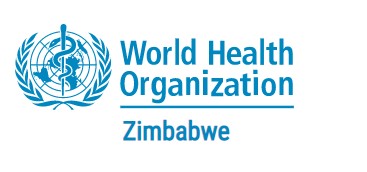On 10 November 2023, Officials from the Ministry of Health and Child Care met with development partners to discuss, consult, and collectively shape a shared vision and agenda to expand provision of health services in Zimbabwe. Participants included representatives from The United Nations family who included UNAIDS, UNICEF, UNDP, UNFPA, and the World Health Organization (WHO). Other development partners included the Global Financing Facility, the Global Fund, Health Resilient Fund representatives (Irish Aid, Foreign and Commonwealth and European Union Commission), the World Bank, Embassy Representatives as well as representatives from civil society and the private sector.
Laying out his vision and priorities during his tenure, Health and Child Care Minister Dr Douglas Mombeshora said one of the key priorities was to engage the Ministry of Finance and Economic Development on the establishment of health workers in the public health sector. He said the current 58, 544 was “inadequate to meet our heath needs.”
Dr Mombeshora also highlighted that work has begun to restructure and fill in vacant posts within the Ministry, while infrastructure and equipment for all health facilities is being prioritized to improve delivery of health care services. He also appealed to the development partners for support on the issue of essential medicines.
“The country requires approximately close to US$20 million per month to meet the medicines requirement. Government is working on an urgent programme to address the situation and support from interested partners is also welcome,” he said.
Appreciating the interactive platform, WHO Zimbabwe Representative, Professor Jean-Marie Dangou, commended the Ministry for its efforts in developing and implementing a new organogram, emphasizing the need to quickly fill in critical posts to enhance productivity. He added that WHO is ready to support the development of stronger coordination units within the Ministry which will boost its performance.
“We note that the organogram remains dynamic with ongoing filling in of key posts as a process. As such, WHO appreciates sharing the final version to help program liaison and enhanced cooperation,” he said.
Professor Dangou also highlighted areas that needed urgent attention to improve on indicators. This included stagnant neonatal mortality rates, low exclusive breastfeeding rates, and recurring outbreaks of cholera. He urged the ministry to address these issues and pledged full support.
“Regarding the performance of the Health Sector, WHO commends the MoHCC for the recognizable efforts in the improvement of key health indicators and re-emphasize that there is still a lot more work to be done to improve on those indicators which are lagging behind,” he echoed.
Zimbabwe has recorded notable reductions in maternal mortality (462 per 100 000 live births) and under five mortality rate (56 per 1 00 live births). The country also enjoys low level of wasting (2.9%), fast progress towards achieving the 95-95-95 HIV targets, and declining malaria incidence through introduction of subnational malaria elimination efforts. The proportion of outbreaks detected within 48 hours in line with IDSR guidelines is also one of the greatest improvements.
The country however has areas not doing very well and require urgent attention. Neonatal mortality (29 per 1000 live births) has remained stagnant while the country also has low exclusive breastfeeding rates (41%). Recurrent and persistent outbreaks of cholera with a case fatality of 2.8% is also another challenge and the outbreak has not been controlled within the two weeks in line with the IDSR Guidelines.
WHO remains committed to supporting the Ministry of Health’s leadership in addressing the major health and developmental challenges facing Zimbabwe.
Distributed by APO Group on behalf of World Health Organzation (WHO) – Zimbabwe.

